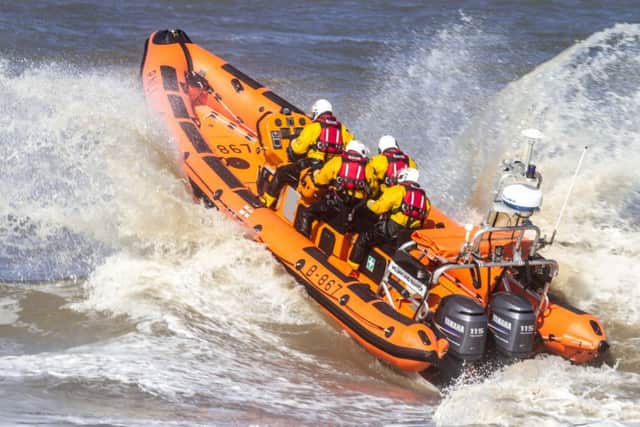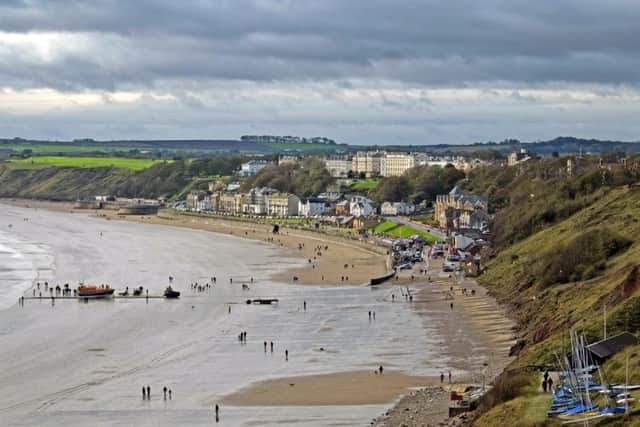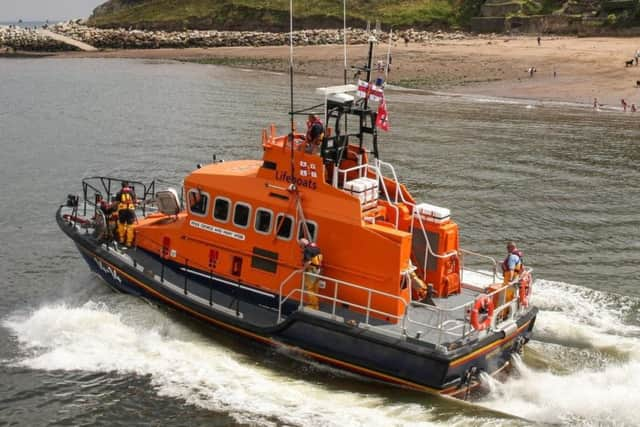How RNLI and its lifeboat crews became an unlikely catalyst for our island race’s vitriol - Jayne Dowle
The voluntary organisation – such a familiar sight along our coastline – has been criticised for diverting its funds to give burkinis to Muslim women in Africa and swimming lessons to children in Bangladesh whilst cutting jobs in the UK.
Advertisement
Hide AdAdvertisement
Hide AdThe charity’s spending overseas is rising by more than 10 cent this year, but it is reported to be planning to lay off 135 staff at home. Until recently – and more on that later – donations were also down. Like many air ambulance services, this emergency service is primarily funded by fundraising and legacies.


The response to ‘RNLI funds burkinis’ was like watching the tide flow in and out at Flamborough. First came a flurry of righteous indignation, with elderly callers to radio chat shows threatening to write the RNLI out of their wills.
Advertisement
Hide AdAdvertisement
Hide AdThen, things rapidly began to turn. Social media users got on board and excused the RNLI-knockers of xenophobia and racism. Suddenly, the charity found itself overwhelmed with donations and support; many people giving money for the first time.


I can understand both sides, but I don’t like this ‘Little Englander’ mentality one bit. If this is what it’s going to be like living here post-Brexit, it’s not looking good for our long-held British values of compassion, tolerance and kindness to those less-fortunate.
The organisation’s stated purpose is “to save lives at sea” but its vision is “to end preventable loss of life at sea”.
To this end, in recent years the RNLI has expanded its remit, undertaking education programmes and projects to promote international water safety.
Advertisement
Hide AdAdvertisement
Hide AdIn 2016 it announced that it was providing training and equipment to Greek, German, Dutch and Swedish organisations to help save migrants crossing from Turkey to Greece. This didn’t go down too well either, if I recall.


However, this latest furore is spectacularly well-timed.
t’s about more than lifeboats and charity tins and buying a pack of RNLI Christmas cards.
It’s about how Brexit has crystallised our feelings about what the UK is and what it should do.
I don’t think anyone should be surprised that the Royal National Lifeboat Institution, founded in 1824 by Sir William Hillary, a Yorkshire-born Quaker, has ended up as such an unlikely catalyst. It’s one of those stalwarts of British life that we rightly respect and hold dear.
Advertisement
Hide AdAdvertisement
Hide AdBut we’re going to see a lot more of this kind of thing in coming months; eruptions of vitriol provoked by the most random things and at moments when we least expect them.
Our collective national psyche is in ongoing trauma; we’re all struggling to establish what our next set of values should be, our own stated purpose and vision if you like. This is going to take some adjusting to. And, clearly, much of the frustration comes from not being able to funnel it directly towards our politicians – thanks to the prorogation of Parliament – although a couple of Conservative MPs did criticise the RNLI for its overseas activities.
I daresay that the outcry also has its roots in our status as an island race. Looming Brexit is making us reconsider just how safe we are as that long-held jewel set in a silver sea; especially if the charity we rely on to rescue us should we come to grief is casting its net away from our shores.
Yes, I can see why there has been criticism. And indeed, every charity should be held up to regular scrutiny and to account by those who support it. If the same level of care had been afforded to some of the people involved in the past with Oxfam and Save the Children, for example, both organisations might have been prevailed upon to concentrate on their remit – helping those in peril – instead of running things to suit themselves.
Advertisement
Hide AdAdvertisement
Hide AdHowever, let’s just remind ourselves of a few salient points. At the last count, there were still more than 350 lifeboats standing ready around the coast of the UK and Ireland. Indeed, this summer alone, I witnessed a rescue at Morecambe Bay in Lancashire, where 23 Chinese cockle pickers died in 2004. From our hotel window, it looked incredibly dramatic. A crowd was gathering to watch the RNLI vessel launch on its mission and of course I had to go and see if there was a story.
By the time I got there, the crew was back onshore. I asked one of the volunteers what had happened. Shrugging off her heavy jacket, she looked nonplussed. “Just some people stuck on the mud,” she said. “It happens all the time, we’re used to it.”
It is hardly as if the RNLI is turning its back on us in our hour of need. Rather, it is trying to establish itself as something the UK can actually be proud of globally. Which is more than can be said for the divisive and defensive posturing onshore.